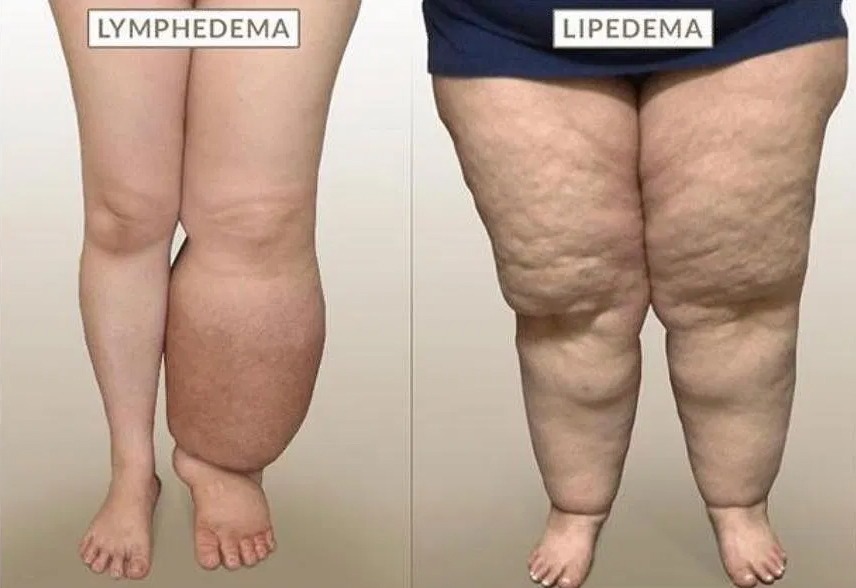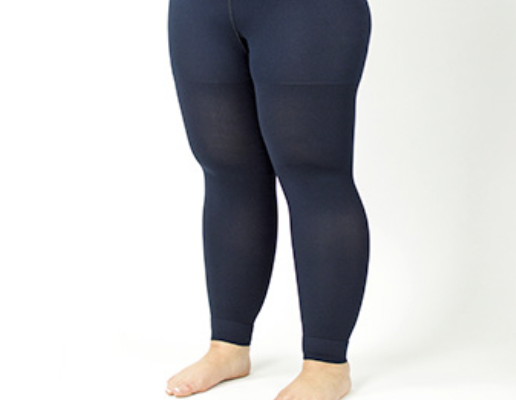When you’re first diagnosed with Lipedema, or even just suspect you have it, it’s natural to wonder:
“Does Lipedema get worse? Will it affect how long I live?”
The good news? Lipedema itself does not reduce life expectancy. But, and this is important, untreated or mismanaged Lipedema can significantly impact your quality of life and lead to complications that affect your long-term health.
Does Lipedema Affect Life Expectancy?
In most cases, Lipedema does not directly shorten your lifespan. It’s not a fatal condition, and many women live full lives with it – even if they don’t get diagnosed for years.
But there are a few important factors to consider:
- Lipedema is progressive
- It can limit mobility if left untreated
- It can lead to chronic Lipedema pain, inflammation, and emotional distress
- In the later stages, it may lead to Lipo-lymphedema, which increases risk of infection and other complications
So while the condition itself may not shorten your life, the side effects of unmanaged Lipedema can add up over time.
Lipedema and Secondary Health Risks
Here’s where Lipedema can start to impact long-term health – if symptoms are ignored or dismissed:
Lipo-Lymphedema
As Lipedema progresses, the lymphatic system can become overwhelmed, leading to secondary Lymphedema. This causes fluid build-up, swelling in the feet, and a higher risk of infections like cellulitis.
Mental Health and Lipedema
Living with a painful, progressive, misunderstood condition can take a toll on your mental health. Anxiety, depression, body image issues, and disordered eating patterns are common with Lipedema – especially in women who are repeatedly dismissed by medical professionals.
Obesity and Inflammation
Lipedema is not obesity, but the two often coexist. Carrying excess non-Lipedema fat can increase inflammation, insulin resistance, and risk of metabolic diseases over time, especially without access to proper care and mobility support.
What the Research Says
There is still very little long-term research on Lipedema life expectancy. That’s because the condition is hugely underdiagnosed, and historically hasn’t been taken seriously by the medical community.
But what we do know is:
- Women with early intervention and proper support live full, active lives
- Those who undergo treatment, whether it’s surgical or conservative measures for Lipedema, report improved quality of life, mobility, and mental health
- Ignoring Lipedema symptoms can lead to avoidable complications, but not typically early death
What Improves Long-Term Outlook with Lipedema?
The most important thing you can do is take early action and find a care plan that supports your body, symptoms, and lifestyle.
Here’s what helps:
- Lipedema compression garments – reduce daily swelling and protect tissue
- Massage for Lipedema (MLD) – supports lymphatic health
- Anti-inflammatory diet for Lipedema – reduces pain and boosts energy
- Low-impact Lipedema workout strategies – keeps joints mobile and supports circulation
- Mental health support – therapy, community, and validation
- Lipedema Reduction Surgery (if accessible) – can improve function and slow progression in latter stages
You Can Live a Long, Healthy Life with Lipedema
Getting a Lipedema diagnosis is not a life sentence. It’s a chance to finally understand your body and start giving it the care it needs. Since receiving my Lipedema diagnosis in 2022, I feel more in tune with my body than ever. It’s really liberating.
You may need to advocate harder. You may need to fight for proper care. But the tools are out there – and so is a community of women who are living proof that you can thrive with Lipedema.
Lipedema and Life Expectancy – What Really Matters
Lipedema doesn’t shorten your life, but it can make it harder if you don’t have support. The sooner you get diagnosed, understand your symptoms, and create an at home Lipedema treatment plan, the more control you take back.
If you’re feeling overwhelmed, start small:
- Learn the typical symptoms
- Find a Lipedema specialist
- And remember – millions of other women suffer with Lipedema worldwide
My inbox is always open, send me an email on
so****@li***********.com
with any questions or for a shoulder to cry on.
Disclaimer: My blogs talk about Lipedema, diet, surgery and much more. I’m talking from my point of view to help women, and remind them they are not alone. I am not a medical professional, so the content above is from my own perspective with research I have done into the topic. It’s not meant as medical advice, you should always consult your doctor or a specialist for both your diagnosis, and a treatment plan.
You may also be interested in:
- Lipedema Bruising: Causes, Management and Care
- Rebounding for Lipedema
- Can you Build Muscle with Lipedema

Sophie is the founder of Lipedema and Me and Find a Surgeon. A fellow Lipedema sufferer based in the UK, she’s experienced first-hand the challenges of getting diagnosed and accessing surgery. Today, her mission is to support other women with Lipedema – raising awareness, sharing resources, and helping others feel less alone on their journey.



